Debts Solution: Introduction
Facing soaring expenses in housing, groceries, and fuel, Canadians grapple with amplified financial strains. The mounting necessity for a debts solution burgeons as debt problems and insolvencies surge. Seeking expert guidance becomes pivotal, steering clear of pitfalls entwined in deceptive debt relief enticements posing as saviours.
In this Brandon’s Blog, I provide insights on mitigating exposure to these cunning ploys by discussing the common warning signs that are prevalent with a debt help scammer. Unearth methods to shield you from the clutches of debt relief scams. Acquire proficiency in detecting warning signals, discerning credible services, and fortifying yourself against deceitful machinations. Delve into tangible scenarios and preemptive strategies to navigate the labyrinthine terrain of a possible debts solution, safely and securely.
Debts Solution: Recognizing Debt Relief Scams
Navigating through debt’s labyrinth often induces immense stress and a sense of being inundated, prompting many individuals to seek solace in debt alleviation initiatives. Yet, exercising prudence and vigilance within this sphere holds paramount significance. Within this industry, deceptive stratagems loom from for-profit debt settlement companies, preying on the susceptible, and exacerbating their financial woes. Deciphering these deceitful maneuvers becomes pivotal; doing so empowers you to shield yourself and judiciously discern the avenues for debt alleviation at your disposal.
Debts Solution: Scammers often ask for upfront fees and make unrealistic promises
Identifying a potential debt relief company scam often hinges on a prominent signal: the insistence on upfront fees by the entity or individual. Authentic debt relief programs typically levy charges solely after achieving a triumphant negotiation or formulation of a repayment strategy. Conversely, imposters brazenly demand payment in advance, vanishing into thin air without rendering any tangible aid.
Moreover, these malevolent actors might peddle unattainable assurances regarding debt eradication or swift resolution of financial problems. It’s imperative to grasp that an overnight miraculous debt dissolution remains an illusory prospect. Legitimate debt mitigation ventures engage in protracted negotiations with creditors, aiming for diminished interest rates or modified payment schemes. This, however, demands time and harmonious collaboration among all involved stakeholders.
When scrutinizing a debt relief initiative, exercise caution toward those espousing immediate or fanciful outcomes. Reputable entities furnish pragmatic prognoses, collaborating with you to sculpt a sustainable blueprint for enduring financial balance and security while providing you with lasting strategies to continually improve your financial situation.
Debts Solution: Beware of anyone who advises you to stop communicating with and paying your creditors
A conspicuous red flag signalling potential deceit in a debt relief scheme emerges when the program advocates severing communication and payments with your creditors. While succumbing to the allure of dodging creditor calls and missives may seem appealing, sidestepping dialogue can exacerbate your predicament.
Genuine debt mitigation programs engage in dialogue with your creditors, endeavouring to forge fresh payment terms or negotiate reduced settlements. They champion transparent communication and harmonious collaboration among all stakeholders. Conversely, swindlers might counsel total cessation of contact with creditors, precipitating escalated interest, penalties, and even legal ramifications.
Should a debt relief program advocate complete cessation of creditor payments, it unequivocally betrays your best interests. Upholding your financial commitments to the best of your capacity remains crucial while charting a course toward resolution via a reputable, trustworthy debts solution avenue.
Debts Solution: Debt relief scams may operate via social networks, text, or email
In the digital age, debt relief frauds have actually discovered their way onto various online platforms. Debt settlement firm fraudsters might connect to you with social media sites, text, or email, encouraging quick and very easy services to your financial obligation troubles.
If you obtain unwanted messages from unidentified sources offering debt settlement solutions, use caution. Reputable debt relief programs typically do not participate in hostile or unsolicited advertising and marketing tactics. It is necessary to do your research study and thoroughly vet any type of company before giving them personal information or agreeing to work with them.
When researching debt settlement choices online, be sure to verify the firm’s credentials and try to find reviews and testimonies from other customers. In addition, inspect if the firm is associated with any reliable industry organizations or if they have any accreditations that demonstrate their competence and trustworthiness.
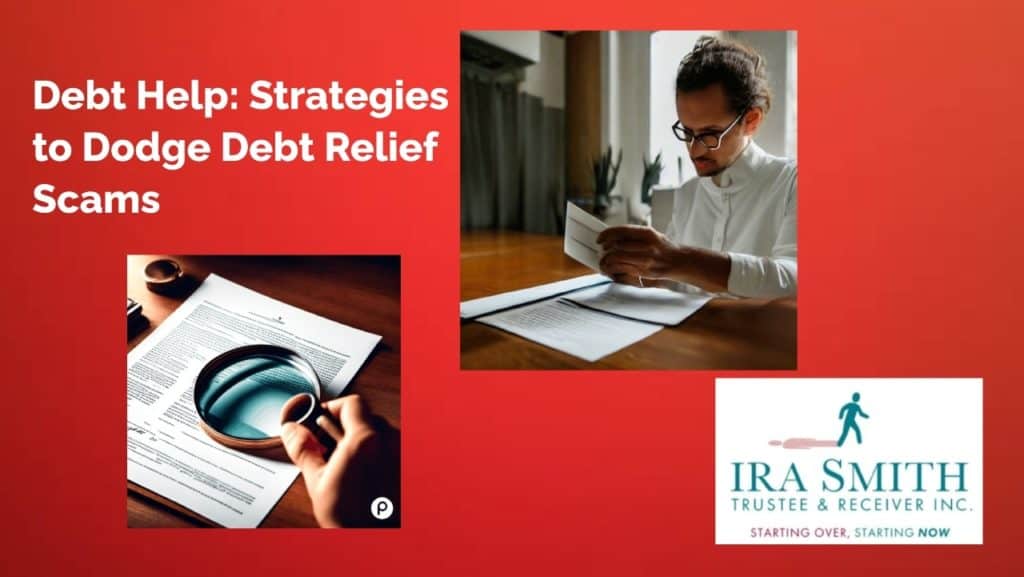
Debts Solution: Seeking Professional Help
Seeking adept guidance from recognized experts in managing your finances and addressing debt problems is a prudent choice. Licensed insolvency trustees emerge as specialists adept in aiding individuals and companies to restructure their way through financial quagmires. Their realm encompasses proffering no-cost initial consultations, delving into your fiscal panorama, dispensing counsel, and facilitating the exploration of diverse avenues in debt management.
The following are 3 legitimate options to consider in solving debt problems. In fact, the debts solution scammers, after sucking as much money out of you as they can, then introduce you to a licensed insolvency trustee to execute one of the below options. Why not avoid the middleman debts solution scammer? All of the “services” they provide, for which they charge you thousands of dollars, you can get from a licensed insolvency trustee during the initial no-cost consultation.
Here are 3 legitimate debt relief options for anyone looking for a debts solution:
Debts Solution: Debt Management Plan
A structured repayment scheme, a debt management plan, proves instrumental in efficaciously steering individuals through their debt labyrinth. Collaborating with a licensed insolvency trustee ensures in tailoring a blueprint attuned to your distinct fiscal landscape. Herein, regular remittances through a payment schedule are made to the trustee to find dispersion among your creditors under their auspices.
The virtues of a debt management plan abound. Primarily, it amalgamates your debts into a singular monthly payment, streamlining financial oversight. Coupled with this, it commonly encompasses a diminished interest rate, harbouring potential savings in the long haul. Furthermore, active participation in such a plan potentially serves as a conduit for the reconstruction of your credit score, contingent upon consistent and punctual payments.
Debts Solution: Consumer Proposal
Should your financial circumstances veer toward a more severe terrain, contemplating the avenue of a consumer proposal emerges as a viable debts solution recourse. It constitutes a binding accord, ensconced in legality, forged between you and your creditors, shepherded by a licensed insolvency trustee. It is the only approved debt settlement government program. In a consumer proposal, your trustee takes over all communication with creditors, freeing you of this burden.
Within this framework, you proffer a proposal to reimburse a segment of your unsecured debts over a stipulated timeframe, commonly spanning five years. This offer is grounded in your reasonable capacity and only requires you to pay a portion of the total indebtedness. Upon acceptance by your creditors, monthly disbursements to the trustee ensue, who, in turn, channels these funds to your creditors. After completing your total set of monthly payments, your entire debt is wiped out.
The merits of opting for a consumer proposal are many. Firstly, it furnishes immediate shielding against collection calls, wage garnishments and legal action reprisals instigated by your creditors. Simultaneously, it facilitates a reduction in your cumulative debt burden, given that the repayment amounts to less than the owed sum. Additionally, resorting to a consumer proposal carries less weight than declaring bankruptcy, exerting a comparably milder impact on your credit standing.
Debts Solution: Bankruptcy as a Last Resort
As a final debts solution recourse, bankruptcy emerges as a potential remedy for individuals ensnared in insurmountable debt with no viable alternatives. This legal recourse orchestrates a fresh start by absolving a significant portion of debts, facilitating a reboot of one’s financial trajectory and life.
However, navigating the terrain of bankruptcy demands judicious consideration, given its weighty repercussions. The enduring impact on your creditworthiness, spanning multiple years, can pose hurdles in securing future credit. Furthermore, the liquidation of certain assets to reimburse creditors and potential constraints on professional accreditation warrant conscientious contemplation in discussion with a licensed insolvency trustee.
Prudent counsel from a licensed insolvency trustee assumes paramount significance before delving into bankruptcy. Our expertise enables a comprehensive no-cost evaluation of your circumstances, guiding you toward the most fitting pathway forward.
Credit counseling is an important aspect of any service provided by a licensed insolvency trustee.
Debts Solution: Protecting Yourself from Fake Loan Scams
Many times debts solution scammers combine a mandatory loan program with their debt relief package. Here are some tips on how to avoid being a victim of these loan program scams.
Be cautious of deals that require payment upfront or appear too good to be real
A substantial indicator of a spurious finance scam materializes when the lender needs payment before finalizing the loan. That is what a bogus debt relief company does or arranges for you. Reputable companies who lend money typically deduct any type of fees or expenditures from the loan itself, avoiding any kind of in-advance payment. Furthermore, lenders that appear excessively beneficial are commonly deceptive. Fraudsters often attract people with implausibly low-interest rates or guarantees of assured loan authorizations, departing from the reasonable standards of the lending world.
Phony lending rip-offs assure loans even with a negative credit history yet never provide the loan
If you have a negative credit rating, scammers may attempt to take advantage of your scenario by encouraging loans without credit history checks or with assured authorizations. Nonetheless, genuine lending institutions always analyze the creditworthiness of a borrower before approving a loan. If a lender is not interested in your credit rating and claims to supply financing to any individual despite their credit rating, it is likely a fake funding fraud. Remember, no lender can ensure funding without appropriate analysis.
Stay clear of offering individual or financial details to unidentified sources
Protecting your personal and financial info is vital in the electronic age. Fraudsters may pose as loan providers and demand sensitive info, such as your social insurance number, bank account details, or driver’s certificate information. Never offer such information to unknown sources or through unknown sites or channels. Genuine lenders will have protected systems in position to secure your data, and they will not ask for unnecessary individual or financial information.

Debts Solution: Conclusion
Getting specialist support from a licensed insolvency trustee is essential in working through the details of your financial debt and money obstacles. Licensed insolvency trustees stand as important wellsprings, supplying invaluable advice, support, and strength for you to navigate the puzzle of economic problems. Whether designing a debt management plan approach or considering a consumer proposal, embarking on these paths alongside a seasoned specialist will let you recover your authority over your entire life. It minimizes the difficult anxiety you have carried and moulds a course towards a much more positive financial destiny.
I hope you enjoyed this debts solution Brandon’s Blog. If you’re struggling with managing your overwhelming debt, don’t worry – there are some things you can do to take control of the situation. It is not your fault you can’t fix this problem on your own and it does not mean that you are a bad person.
First, it’s important to create a realistic budget and track your expenses. From there, you can prioritize your debt repayment and make consistent payments to chip away at what you owe. It’s also a good idea to seek professional financial advice to help guide you through the process. Just remember, managing debt is a gradual process that requires commitment and determination, but you can do it! So don’t hesitate to reach out for help from financial professionals.
Individuals and business owners must take proactive measures to address financial difficulties and promptly seek assistance when necessary. It is crucial to recognize that financial stress is a prevalent concern and seeking help is a demonstration of fortitude, rather than vulnerability. Should you encounter challenges in managing your finances and find yourself burdened by stress, do not delay in pursuing aid.
Revenue and cash flow shortages are critical issues facing people, entrepreneurs and their companies and businesses with debt problems that are in financial distress. Are you now worried about just how you or your business are going to survive? Are you worried about what your fiduciary obligations are and not sure if the decisions you are about to make are the correct ones to avoid personal liability? Those concerns are obviously on your mind.
The Ira Smith Team understands these financial health concerns. More significantly, we know the requirements of the business owner or the individual who has way too much financial debt. You are trying to manage these difficult financial problems and you are understandably anxious.
The pandemic has thrown everyone a curveball. We have not been trained to deal with this. You have only been taught the old ways. The old ways do not work anymore. The Ira Smith Team uses innovative and cutting-edge methodologies, to adeptly navigate you through the intricacies of your financial challenges, ensuring a resolution to your debt-related predicaments without resorting to the rigours of the bankruptcy process. We can get you debt relief now!
We have helped many entrepreneurs and their insolvent companies who thought that consulting with a Trustee and receiver meant their company would go bankrupt. On the contrary. We helped turn their companies around through financial restructuring.
We look at your whole circumstance and design a strategy that is as distinct as you are. We take the load off of your shoulders as part of the debt settlement strategy we will draft just for you.
The Ira Smith Trustee & Receiver Inc. team understands that people facing money problems require a lifeline. That is why we can establish a restructuring procedure for you and end the discomfort you feel.
Call us now for a no-cost consultation. We will listen to the unique issues facing you and provide you with practical and actionable ideas you can implement right away to end the pain points in your life, Starting Over, Starting Now.
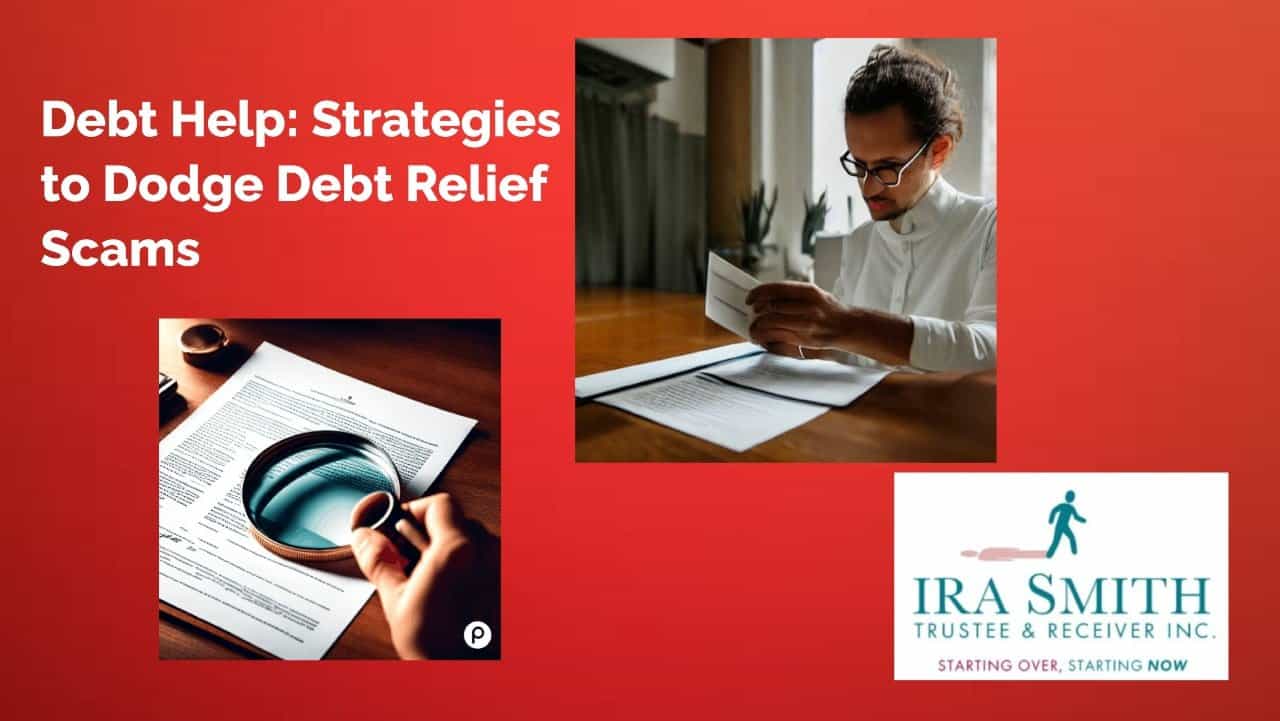

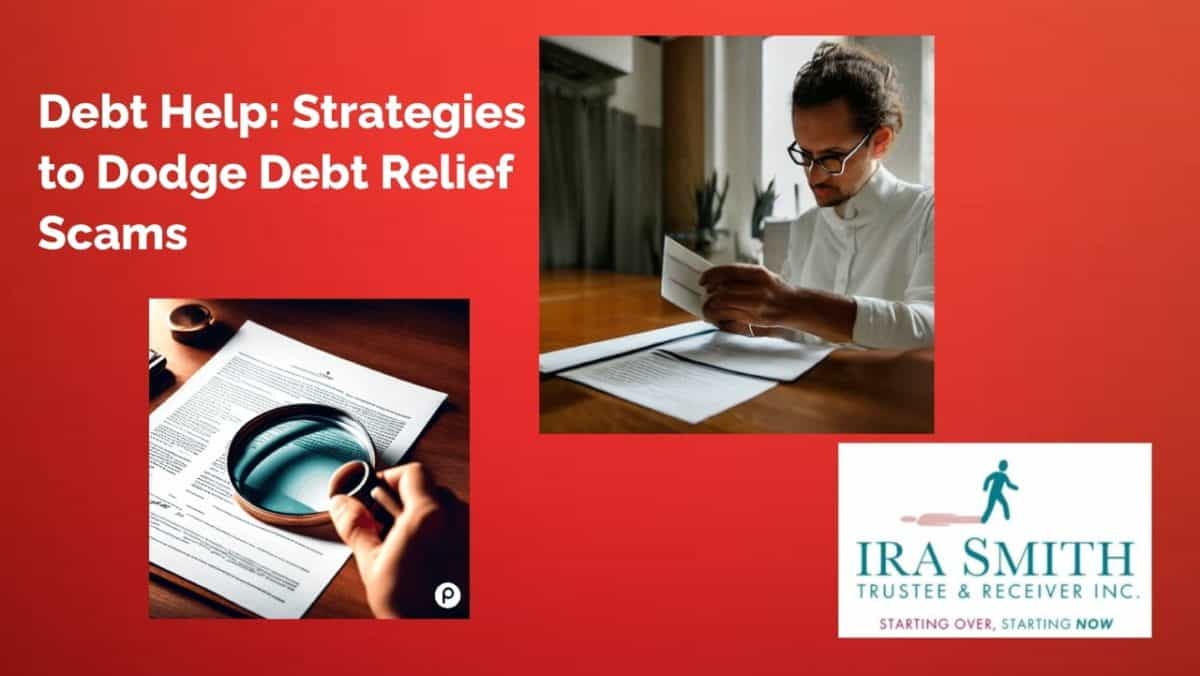
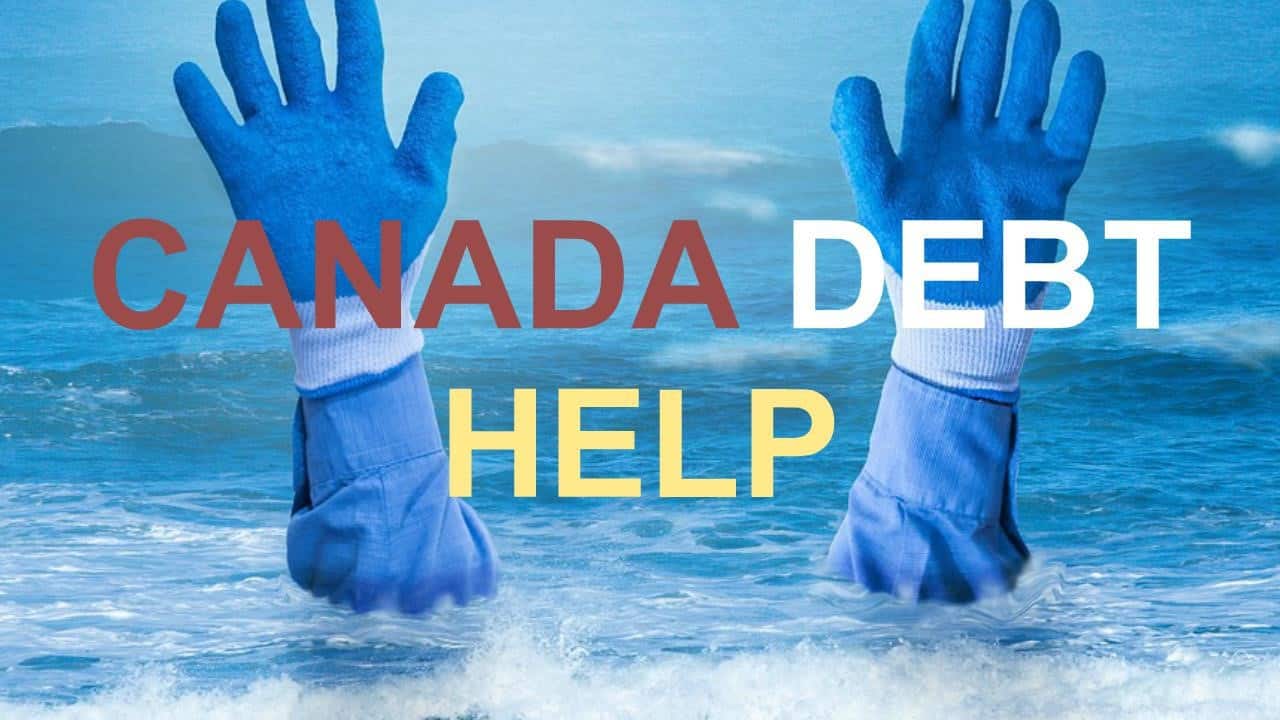

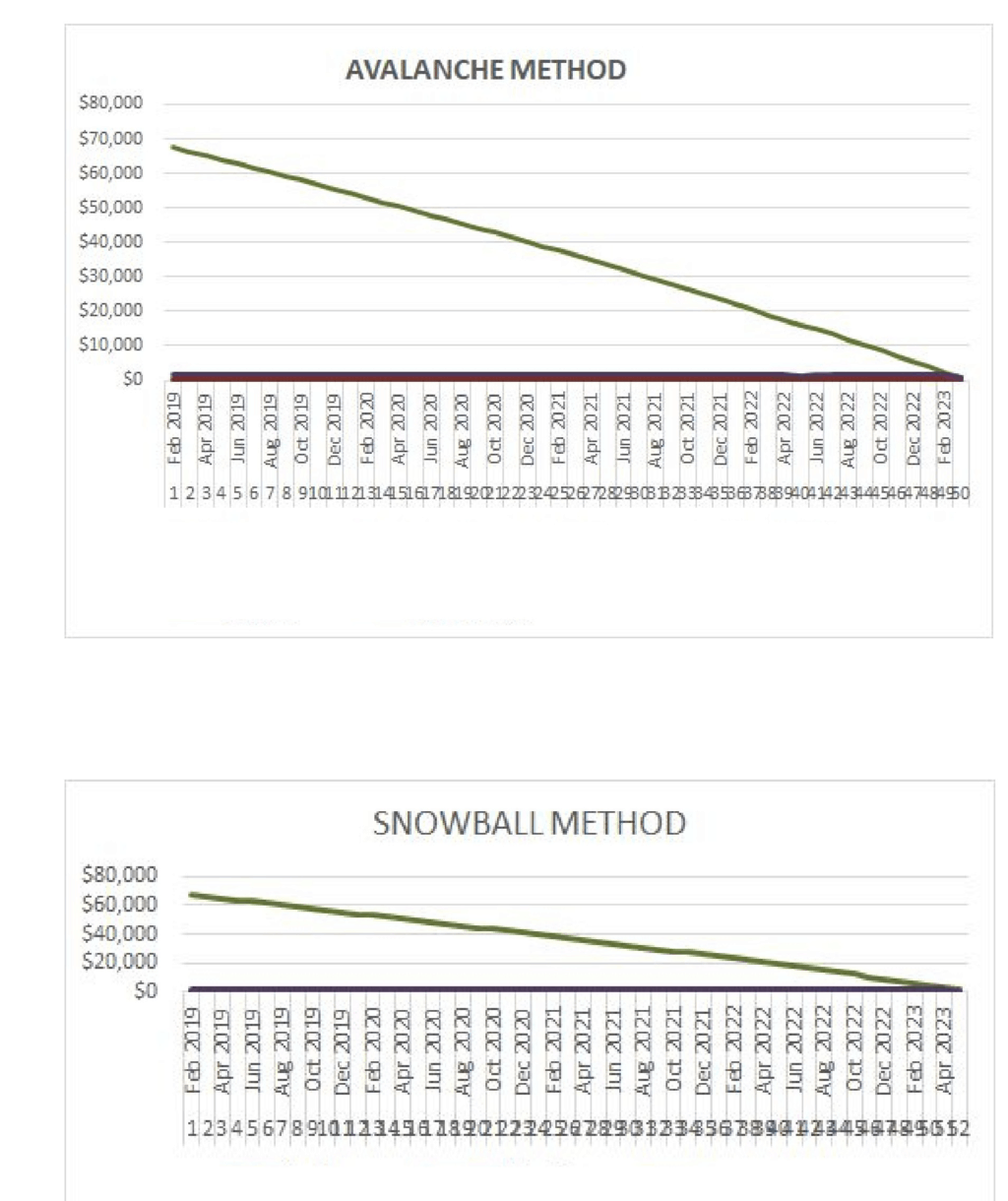


 Articles about debt help: Introduction
Articles about debt help: Introduction